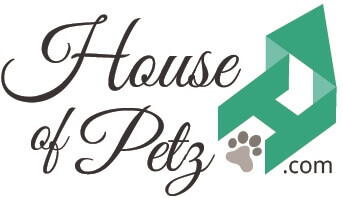Like people, dogs are omnivorous creatures. That means they can consume all kinds of foods, not that they should.
A well-balanced diet can help your pooch stay healthy and strong and live a longer life. The question is, should your pup consume only dog food or can he follow a diet similar to your own? Not all veterinarians agree. What are the pros and cons of each?
Here are some important facts every dog owner should know about the dietary needs of their pet.
Dog Food Diet
A well-balanced, wholesome diet is essential to your dog’s health. If it combines quality meat and plant products, it will generally meet a dog’s nutritional needs. While some dogs do well on only a vegetarian diet, a diet consisting purely of meat won’t provide your pet with all the nutrients it needs to stay healthy.
Your canine’s diet should contain the following nutrients to help him grow healthy and strong:
- Water
- Protein
- Vitamins
- Minerals
- Carbohydrates
- Fats
These nutrients are vital to helping your pet’s systems function as they should.
When selecting commercial dog food, look for quality commercial dog food brands that meet the standards of the Association of American Feed Control Officials (AAFCO). These dog food brands are more likely to meet your pet’s nutritional needs:
- It should have real, wholesome ingredients that can be easily digested by your pet.
- It should be low in calories to prevent your pet from gaining excess weight.
- It can be dry or wet (canned), depending on your budget and the preferences of your pet. Canned dog food may be more conducive to dogs that need extra water or have specific dietary needs.
- If you need help choosing commercial dog food, talk to your vet. Your vet knows your pet’s health needs and can guide you in selecting a quality brand.
People Food Diet
Dogs can consume many of the same foods as people. That doesn’t necessarily mean your pooch should follow your diet, but it’s an option you can consider, depending on your pet’s health.
Here are some tips for introducing people food into your pup’s diet:
- Go slow. Your dog’s digestive system may need time to adjust to the change from doggie kibble to a human diet. You can start by mixing tidbits of cooked meat or veggies into his kibble to see how he reacts. This amount can be increased over time to the combination that you desire.
- Fruits—such as watermelon, apples, and blueberries—and veggies—such as carrots, asparagus, green beans, and pumpkin—can provide nutritional value to your pet’s diet without adding excess calories.
- Raw meat isn’t good for your pet and high-fat meat can lead to excess weight gain. Always cook any meat you want to give your pup. Consider lean meats like chicken, fish, and low-fat beef.
- Some people food is toxic to dogs. This includes grapes and raisins, chocolate, coffee, tea, artificial sweeteners, avocadoes, garlic, and soda. Processed food can also cause all kinds of health issues in both people and pets. Cooked bones can make your dog sick, too.
- Adapt your dog’s diet to its current life stage. Senior dogs, for example, need a high-protein, low-calorie diet since they’re not as active as puppies. If your pet has specific health issues, consult your vet about its dietary needs.
Consequences of Dogs Following a People Food Diet
Although eating people food may not harm your dog, it could lead to physical or behavioral consequences, such as bad habits associated with getting used to people food.
- He may start begging for food during your mealtimes or run around whining if you don’t share something off your plate.
- Your pooch could become a picky eater, rejecting commercial dog food altogether and wanting only certain foods on his plate.
- If you allow other people to give your dog food, there’s a risk it may be in one of the above toxic categories.
- If his people-food diet isn’t carefully supervised, there may be weight-gain issues. Obesity among pets can lead to major heart, liver, and respiratory problems.
Dogs make wonderful life companions, helping people through difficult times like death in the family or alcohol and drug recovery. The right diet can help keep your dog healthy and happy for years to come.
As no two dogs are exactly alike, it’s important to choose a diet that meets your canine’s individual nutritional needs. efore making major changes to your pet’s diet, it’s important to consult your vet.
Even then, when introducing new foods to your pet’s diet, monitor the effect they have on its health. This will give you a good idea of what’s healthy and what’s not.
Author Bio:
Patrick Bailey is a professional writer mainly in the fields of mental health, addiction, and living in recovery. He attempts to stay on top of the latest news in the addiction and the mental health world and enjoy writing about these topics to break the stigma associated with them.
